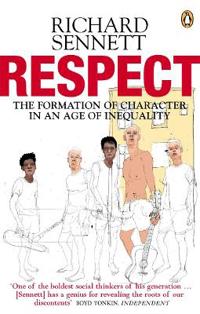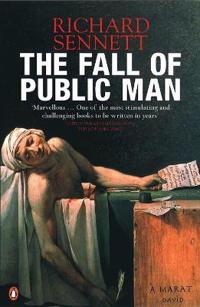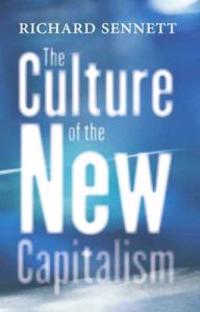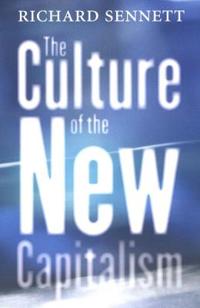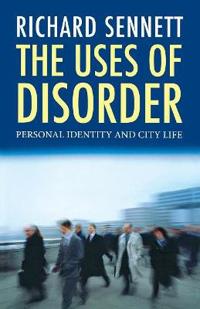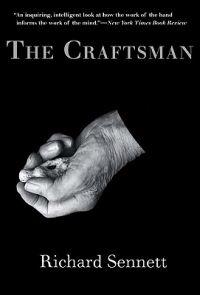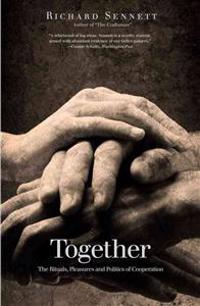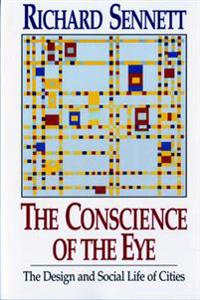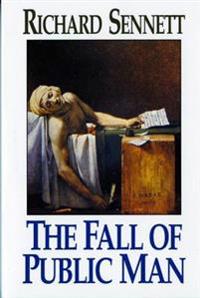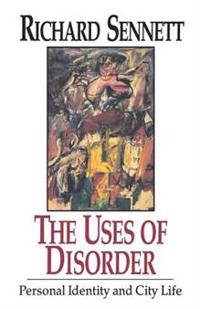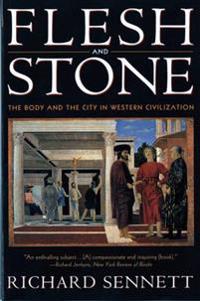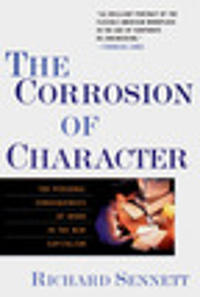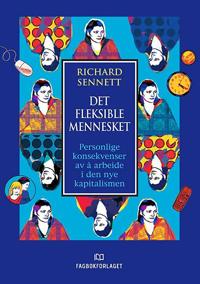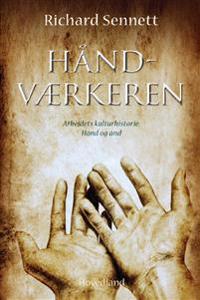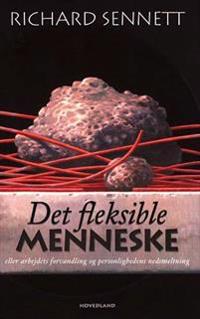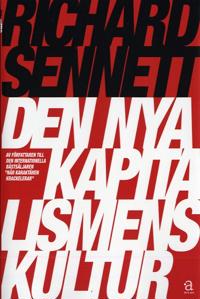Respect (Storpocket)
avRichard Sennett
ISBN: 9780141007564 - UTGIVEN: 200401Richard Sennett's "Respect: The Formation of Character in an Age of Equality" is a provocative and timely examination of the forces that erode respect in modern society. 'Unlike food, respect costs nothing. Why, then, should it be in short supply?' Respect can be attained by gaining success, by deve[...]
The Fall of Public Man (Storpocket)
avRichard Sennett
ISBN: 9780141007571 - UTGIVEN: 200301Richard Sennett's "The Fall of Public Man" examines the growing imbalance between private and public experience, and asks what can bring us to reconnect with our communities. Are we now so self-absorbed that we take little interest in the world beyond our own lives? Or has public life left no place [...]
The Craftsman (Storpocket)
avRichard Sennett
ISBN: 9780141022093 - UTGIVEN: 200902Why do people work hard, and take pride in what they do? This book discusses about what happens when people try to do a good job. It asks us to think about the true meaning of skill in the 'skills society' and argues that pure competition is a poor way to achieve quality work. Sennett suggests, inst[...]
Together (Häftad)
avRichard Sennett
ISBN: 9780141022109 - UTGIVEN: 201302Living with people who differ - racially, ethnically, religiously or economically - is one of the most urgent challenges facing civil society today. "Together" argues that co-operation needs more than good will: it is a craft that requires skill. In modern society traditional bonds are waning, and w[...]
The Culture of the New Capitalism (Inbunden)
avRichard Sennett
ISBN: 9780300107821 - UTGIVEN: 200601A distinguished MIT sociologist surveys major differences between earlier forms of industrial capitalism and the more global version that is evident today to illustrate how the work ethic is changing, new beliefs about merit and talent are displacing old values of craftsmanship and achievement, and [...]
Together: The Rituals, Pleasures and Politics of Cooperation (Inbunden)
avRichard Sennett
ISBN: 9780300116335 - UTGIVEN: 201201Living with people who differ--racially, ethnically, religiously, or economically--is the most urgent challenge facing civil society today. We tend socially to avoid engaging with people unlike ourselves, and modern politics encourages the politics of the tribe rather than of the city. In this thoug[...]
The Culture of the New Capitalism (Pocket)
avRichard Sennett
ISBN: 9780300119923 - UTGIVEN: 200701In this provocative book, Richard Sennett looks at the ways today's global, ever-mutable form of capitalism is affecting our lives. He analyzes how changes in work ethic, in our attitudes toward merit and talent, and in public and private institutions have all contributed to what he terms 'the spect[...]
The Uses of Disorder (Häftad)
avRichard Sennett
ISBN: 9780300148275 - UTGIVEN: 200809Richard Sennett is one of the world's leading sociologists, and this book, first published in 1970, was his first single-authored work. It launched his exploration of communities and how they live in cities, and outlined his view that order breeds narrow, violence-prone lives, while an 'equilibrium [...]
Together: The Rituals, Pleasures and Politics of Cooperation (Häftad)
avRichard Sennett
ISBN: 9780300188288 - UTGIVEN: 201303The Conscience of the Eye: The Design and Social Life of Cities / (Häftad)
avRichard Sennett
ISBN: 9780393308785 - UTGIVEN: 199208From the assembly halls of Athens to the Turkish baths of New York's Lower East Side, from eighteenth-century English gardens to the housing projects of Harlem--a study of the physical fabric of the city as a mirror of Western society and culture.[...]
The Uses of Disorder: Personal Identity and City Life (Häftad)
avRichard Sennett
ISBN: 9780393309096 - UTGIVEN: 1992-08Sennett] has ended up writing the best available contemporary defense of anarchism. . . . The issues he] raises are fundamental and profound. His book is utopian in the best sense it tries to define a radically different future and to show that it could be constructed from the materials at hand. Ke[...]
Flesh and Stone: The Body and the City in Western Civilization (Häftad)
avRichard Sennett
ISBN: 9780393313918 - UTGIVEN: 199603Flesh and Stone is the story of the deepest parts of life how women and men moved in public and private spaces, what they saw and heard, the smells that assailed them, where they ate, how they dressed, the mores of bathing and of making love all in the architecture of stone and space from ancient At[...]
The Corrosion of Character (Pocket)
avRichard Sennett
ISBN: 9780393319873 - UTGIVEN: 200001In The Corrosion of Character, Richard Sennett, "among the country's most distinguished thinkers . . . has concentrated into 176 pages a profoundly affecting argument" (Business Week) that draws on interviews with dismissed IBM executives, bakers, a bartender turned advertising executive, and many o[...]
Respect in a World of Inequality (Pocket)
avRichard Sennett
ISBN: 9780393325379 - UTGIVEN: 2004-01As various forms of social welfare were dismantled through the last decade of the 20th century, many thinkers argued that human well-being was best served by a focus on potential, not need. Richard Sennett disagrees. In this fusion of personal memoir and reflective scholarship, he addresses the need[...]
Foreigner (Inbunden)
avRichard Sennett
ISBN: 9781907903083 - UTGIVEN: 201104Paris in the nineteenth century was a magnet for Europe's exiles, among them the Russian genius, Alexander Herzen, who described the experience of displacement from the inside. Richard Sennett plunges into this vibrant, anxious world to recreate the experiences of Herzen and his contemporaries.[...]
Det fleksible mennesket; personlige konsekvenser av å arbeide i den nye kapitalismen (Pocket)
avRichard Sennett
ISBN: 9788276747331 - UTGIVEN: 2001The Corrosion of Character (Sennett, 1998), til norsk ved Vidar Enebakk. Innledning av Tian Sørhaug. Den nye, fleksible kapitalismen fremtvinger spørsmål om vår karakter - de personlige egenskapene vi verdsetter ved oss selv, og som vi ønsker at også andre skal verdsette. Hvordan kan vi avgj�[...]
Håndværkeren (Häftad)
avRichard Sennett
ISBN: 9788770701013 - UTGIVEN: 2009I sin mest ambitiøse bog til dato udforsker en af vor tids store intellektuelle tænkere håndværkets fortid og nutid; hans pointe kommer frem, når han forbinder fysisk arbejde med etiske værdier.
Selvom ordet ´hÃ¥ndværk´ mÃ¥ske leder tankerne hen pÃ¥ en liv[...]Det fleksible menneske eller Arbejdets forvandling og personlighedens nedsmeltning (Häftad)
avRichard Sennett
ISBN: 9788777394140 - UTGIVEN: 2006Det fleksible menneske - eller arbejdets forvandling og personlighedens nedsmeltning er den fulde titel på Richard Sennetts bog. Hvordan er det muligt at realisere langsigtede mål og værdier, når det moderne samfund og arbejdslivet er helliget det korte sigt og de uendeligt små tidshorisonter? [...]
Den nya kapitalismens kultur (Danskt band)
avRichard Sennett
ISBN: 9789173893077 - UTGIVEN: 200705Uppföljaren till klassikern "När karaktären krackelerar".
Ett helt nytt sätt att se på arbete, talang och konsumtion har under det senaste decenniet slagit igenom på bred front. Det talas om flexiblitet och mobilitet, med exempel från en liten del av arbetslivet, där yrken inom h[...]

